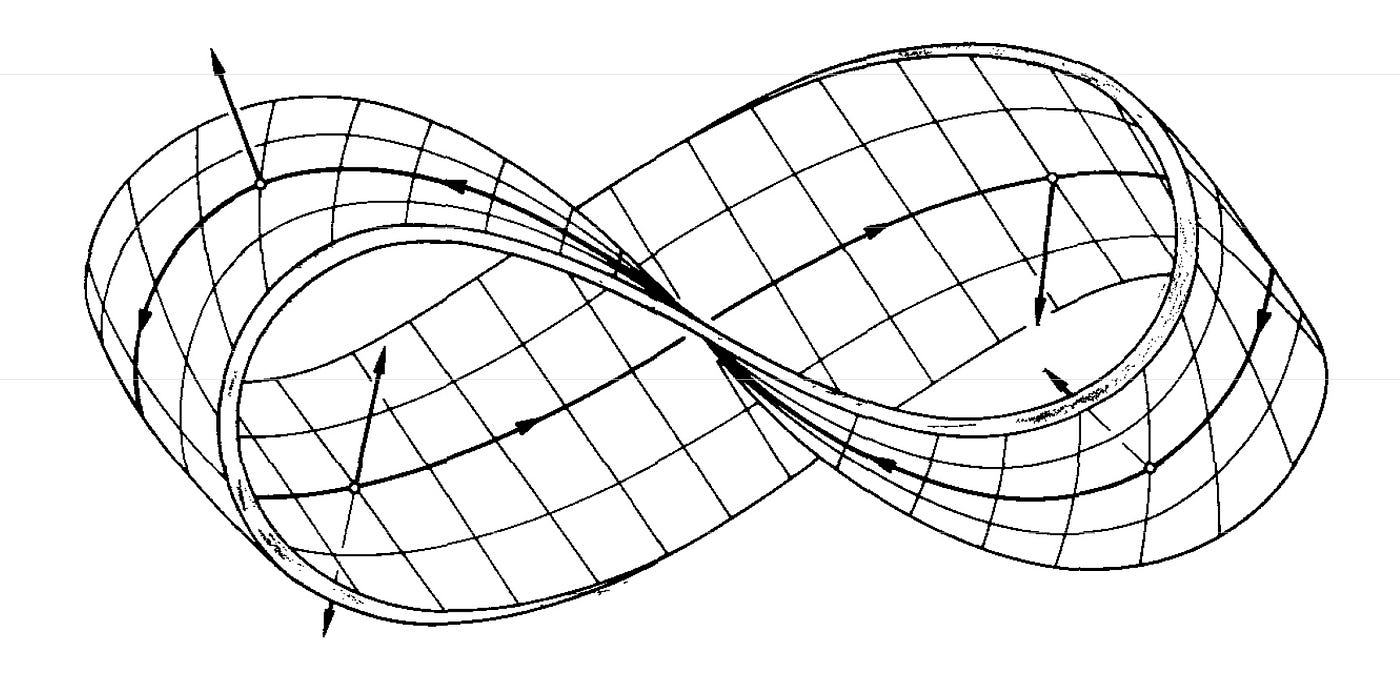Life is a Möbius Strip
Makliya Mamat / June 23, 2024
I didn’t know I wanted to do science until very recent years. Or at least I didn’t know what a scientist does nor what science truly is. Sometimes it feels like everything happened so quickly, just in a matter of days, and yet it also felt so slow that I remember clearly the sparks and thoughts of every tiny step.
Recently, I was invited on a couple of occasions to give talks about my journey, about how I came to be where I am today. At first, I wasn’t sure what they meant by “where I am today.” Later, I understood that it was about sharing the road of learning, the sparks, particularly in science. So, I shared my little stories with the lessons I learned.
I received extremely heartfelt messages from the audience; people came up to me at the exit door expressing how they were inspired by the talk. This encouraged me to write it up and share it here as well. Although I’m speaking from my relatively small span of experience, and I’ll probably write a better version with more interesting things in the future, for now, here it is.
Interconnectedness of Knowledge
Nature has no boundaries. Mathematics, physics, biology, chemistry — they’re all different lenses through which the same reality is observed. Learning things fundamentally, as in first principles, allows for a more integrated view of the world. It’s important not to be limited by the artificial boundaries set by academic disciplines.
In my journey, for example. Astronomy taught me the importance of looking at the big picture, appreciating the vastness and complexity of the universe. The sheer scale of the cosmos and the principles governing it instilled a profound sense of wonder. The path began to intersect with neuroscience. Neuroscience brought that sense of wonder down to the human scale, revealing that the mysteries of the mind are just as profound as those of the cosmos.
Curiosity
Curiosity is the heart of scientific discovery. It drives the asking of questions, the seeking of answers, and the pushing of boundaries. In science, the journey of learning never ends. Pursuing what genuinely interests you, rather than what is predefined by others or tasks, makes the process much more enjoyable.
Each question opens up a multitude of new questions, creating a continuous loop that drives scientific progress. The more learned, the more there is to realize how much there is still to understand.
Stepping Back
Stepping back from the details, especially when stuck on a difficult problem, often provides fresh perspectives and insights. One of the most effective strategies I’ve found is taking walks in nature. There’s something about the tranquility of the plants and birds that sparks creativity. I often listen to lectures or audiobooks during these walks. It’s during these moments that the “aha” moments often strike.
Learning from Failure
In my opinion, failure is not the opposite of success but a crucial step toward it. Each failure teaches lessons and tells us what we thought we knew but maybe didn’t or didn’t know well enough. Experiments will fail, hypotheses will be disproven. The key is to learn from these setbacks and refine our approaches. Resilience in the face of failure is what ultimately leads to true understanding.
The memory of my early research projects was not a good picture to recall. Nothing worked as expected. Or, to be clearer, nothing was expected due to a lack of basic knowledge, and it felt like hitting a wall for a long time. But each difficulty taught me something new. Those experiences led to a deeper understanding of concepts that wouldn’t have been possible otherwise.
Perseverance
The path to discovery or learning is rarely straightforward. It requires relentless drive, even when the odds seem insurmountable. Great research demands continuous hard work and a significant investment of time.
Value of Mentorship
One of the big lessons I’ve learned over the past few years is the importance of mentorship and collaboration. Initially, I valued solitude for clarity and focus. However, I soon realized that mentorship and collaboration are vital for scientific progress. Not everyone has it all figured out, and building a supportive network of peers and mentors provides guidance, encouragement, and fresh perspectives.
I’ve been fortunate to have mentors who guided me and collaborators who enriched my work. These relationships have been crucial for my growth as a researcher. They provide a sense of shared purpose, which is essential for sustained inspiration, especially when facing challenges. The best mentors not only share their knowledge but also inspire one to push personal boundaries.
Life is a Möbius Strip
Most of these insights apply not only to science but also to life. Life is like a Möbius strip. A Möbius strip is a surface with only one side and one edge. If you start drawing a line on one side, you’ll eventually return to your starting point but on the other side. The journey is continuous, with no clear beginning or end.
Every try is a step toward learning something new, and an opportunity for growth. Continue on this infinite loop, driven by the pleasure of understanding.
Trust in this journey. Embrace its twists and turns. In the end, the path itself is the greatest discovery of all.
Search posts by date

Newsletter
- Updates from Makliya Notes will be delivered to your inbox.

